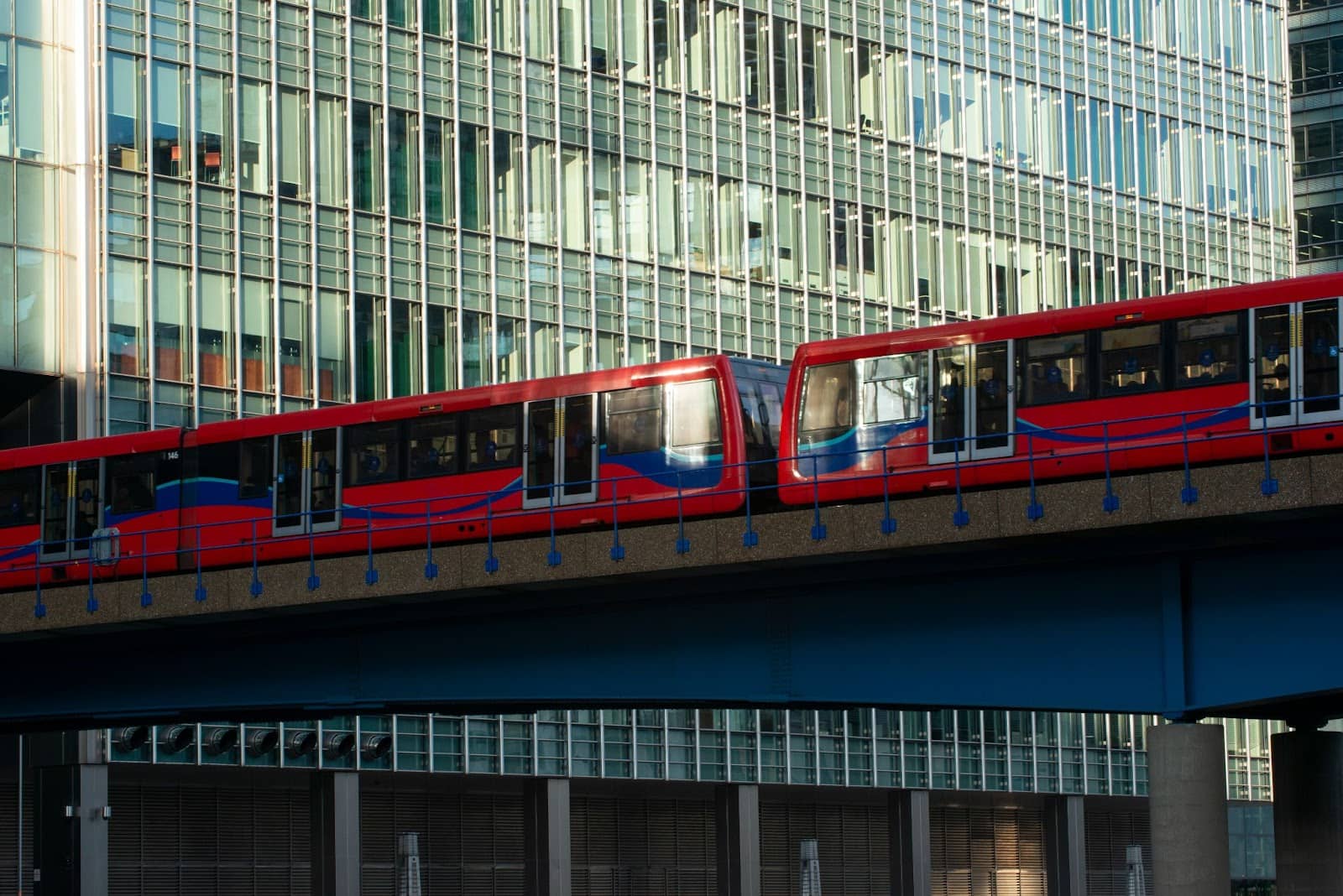The Impact of AI and IoT on UK Cities.
In this blog, we're exploring how clever AI and IoT interventions are turning UK cities smart.
Date
9/2/2024
Sector
Insights
Built Environment
Subject
Trends
Article Length
3 minutes

Smart Cities.
Share Via:
Cities across the UK are embracing the potential of AI and the Internet of Things (IoT) to become smarter, more efficient, and more responsive to the needs of their citizens. This digital transformation is reshaping urban life, offering new opportunities to enhance safety, sustainability, and overall quality of life, while also presenting significant benefits to commuters.
Smart Cities in the UK
The concept of a smart city is no longer confined to futuristic visions of flying cars and robots. In the UK, any city or town that has integrated sensors and connectivity into its infrastructure is already on the path to becoming a smart city. According to S&P Global, the adoption of AI and IoT technologies in urban areas is primarily driven by the need to improve public safety, sustainability, and the quality of life for residents. For example, London's focus on digital access, including the widespread deployment of 5G and fibre connectivity, has positioned it as one of the smartest cities globally.

The introduction of BT Group's narrowband-IoT (NB-IoT) network, which covers 97% of the UK's population, is a significant milestone in this journey. This low-power network, built on EE's mobile infrastructure, enables the connection of low-data-demand assets like street lighting and underground water sensors. Such advancements not only improve efficiency and reduce costs for utilities but also pave the way for more comprehensive smart city initiatives across the UK.
Enhancing Citizens' Lives Through AI and IoT
For citizens, the benefits of AI and IoT in smart cities are tangible and far-reaching. Safety is a top priority, with AI-powered video surveillance and smart street lighting systems becoming more prevalent. In cities like Las Vegas, smart parks equipped with optical sensors provide situational awareness, enhancing public safety even when the parks are closed. The UK is following suit, with cities deploying similar technologies to ensure safer public spaces.
Sustainability is another key area where AI and IoT are making a difference. In Lisbon, digital twins—a high-fidelity virtual representation of the city—are used to predict and mitigate the effects of urban flooding. UK cities can leverage similar technologies to prepare for extreme weather events, manage resources more effectively, and reduce their carbon footprint. The integration of AI into public transportation systems can also help reduce traffic congestion, lower emissions, and improve the overall efficiency of urban mobility.
Quality of life improvements extend beyond safety and sustainability. AI and IoT enable better public services, from free public Wi-Fi to hyperlocal air quality monitoring. London's focus on providing these services is a testament to the potential of smart cities to create more livable, enjoyable environments for their residents.
Empowering the Workforce in AI-Driven Cities
The digital transformation of cities is not only about improving the lives of citizens; it also has significant implications for workers. AI and IoT technologies are streamlining government services, reducing the administrative burden on employees, and allowing them to focus on more complex, value-added tasks. For instance, AI-powered digital government portals in some international cities can automate routine tasks like permit applications, freeing up resources and improving service delivery.
Moreover, the rise of AI in smart cities is creating new job opportunities in tech-driven sectors. From managing IoT networks to developing AI algorithms for smart transportation systems, the demand for skilled workers in these areas is on the rise. This shift not only supports economic growth but also ensures that the workforce is equipped with the skills needed for the future.
However, it is crucial to address the potential risks associated with this technological shift. Concerns about data privacy, cybersecurity, and digital equity must be managed carefully to ensure that the benefits of AI and IoT are shared broadly across society. Policymakers and industry stakeholders need to work together to establish safeguards and inclusive deployment strategies.
The Road Ahead for UK Cities
The future of UK cities lies in their ability to harness the power of AI and IoT to create safer, more sustainable, and more equitable urban environments. As these technologies continue to evolve, the potential for smart cities to improve the lives of citizens and workers is immense. However, realising this potential will require careful planning, collaboration, and a commitment to addressing the challenges that come with digital transformation.